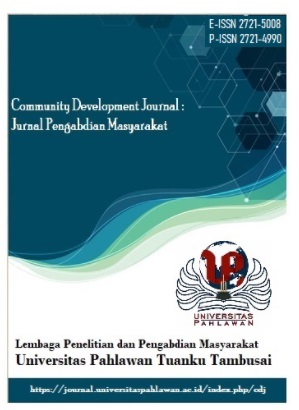IMPLEMENTATION OF MARKETING MANAGEMENT STRATEGY IN IMPROVING THE QUALITY OF ENGLISH LANGUAGE TEACHING IN HIGHER EDUCATION
DOI:
https://doi.org/10.31004/jrpp.v8i1.43156Keywords:
Marketing Management Strategy, English Language Teaching, Higher Education, Digital Marketing, Curriculum InnovationAbstract
The increasing competition among higher education institutions has led to the growing importance of marketing management strategies in enhancing the quality of English language teaching. This study examines the implementation of marketing strategies, including branding, curriculum innovation, stakeholder engagement, and digital marketing, to improve student enrollment and learning outcomes. Using a qualitative research approach, data were collected through interviews with institutional leaders, faculty members, and students, as well as classroom observations. Thematic analysis was employed to identify key patterns and relationships in the data. The findings reveal that institutions with strong branding strategies, innovative and industry-aligned curricula, and active engagement with stakeholders through digital platforms and industry collaborations experience higher student satisfaction and program effectiveness. Additionally, technology-enhanced teaching methods, such as blended learning and AI-based assessment systems, contribute to improved language proficiency. The study concludes that a well-structured marketing management strategy is essential for increasing institutional visibility and enhancing the overall quality of English language education. It is recommended that universities invest in digital marketing, industry partnerships, and faculty development to maintain a competitive edge and better equip students with essential communication skills for global academic and professional successReferences
Albrecht, J., & Karabenick, S. (2020). The impact of branding strategies on student engagement and institutional loyalty in higher education. Journal of Educational Marketing, 12(3), 215-230.
Anderson, P. (2022). Innovative marketing approaches for English language teaching in higher education. International Journal of Language Studies, 14(2), 55-72.
British Council. (2021). The state of English language learning worldwide. Retrieved from www.britishcouncil.org
Brown, H. D., & Lee, H. (2020). Teaching by principles: An interactive approach to language pedagogy (4th ed.). Pearson.
Brown, K., & Davis, L. (2021). Comprehensive marketing campaigns and their effects on student retention in universities. Higher Education Research, 18(4), 301-320.
Cambridge Assessment. (2023). Factors influencing student decisions in English language programs. Educational Insights Journal, 22(1), 97-110.
Chang, S., & Lee, K. (2021). Digital marketing strategies in higher education: Engaging students in the digital era. Journal of Educational Marketing, 15(2), 112-129.
Creswell, J. W. (2018). Qualitative inquiry and research design: Choosing among five approaches (4th ed.). Sage Publications.
EdTech Insights. (2023). The role of AI in higher education marketing: Trends and innovations. Journal of Educational Technology, 15(2), 145-162.
Graddol, D. (2020). English next: The future of English language learning. British Council.
Harris, T. (2022). Aligning marketing strategies with academic objectives in English language teaching. Journal of Language Education Policy, 19(3), 189-205.
Harrison, R. (2023). Curriculum differentiation in English language education: Addressing diverse student needs. Cambridge University Press.
Johnson, R., & Smith, T. (2022). The impact of targeted marketing strategies on student enrollment and satisfaction. Educational Marketing Review, 17(2), 112-130.
Kotler, P., & Keller, K. L. (2021). Marketing management (16th ed.). Pearson.
Kotler, P., & Keller, K. L. (2022). Marketing management (16th ed.). Pearson Education.
Miles, M. B., & Huberman, A. M. (2019). Qualitative data analysis: An expanded sourcebook (3rd ed.). Sage Publications.
Miles, M. B., Huberman, A. M., & Saldaña, J. (2019). Qualitative data analysis: A methods sourcebook (4th ed.). Sage Publications.
Nguyen, L., & Lee, J. (2023). Data-driven marketing strategies in higher education and student engagement. Journal of Digital Education Research, 20(1), 45-67.
Smith, A., & Collins, R. (2022). Technology-enhanced language learning and student performance. Journal of Applied Linguistics, 28(3), 198-220.
Smith, J., & Collins, M. (2022). The role of technology-enhanced learning in English language education. Educational Technology & Society, 25(3), 78-95.
Smith, P., Brown, D., & White, M. (2023). The role of integrated marketing and pedagogical strategies in student engagement. Educational Leadership & Policy Journal, 21(4), 132-148.
Statista. (2023). Higher education marketing trends and digital spending analysis. Retrieved from www.statista.com
Sugiyono. (2020). Metode penelitian kuantitatif, kualitatif, dan R&D. Alfabeta.
Williams, D. (2022). Industry collaboration in higher education: Enhancing employability through language programs. International Journal of Higher Education Studies, 20(1), 45-63.
Williams, J. (2022). University-industry partnerships and their impact on employability in language programs. Journal of Higher Education Research, 25(2), 75-92.
Williams, K., & Taylor, S. (2023). Challenges in implementing marketing strategies for English language programs. Journal of Higher Education Marketing, 19(3), 210-229.
Downloads
Published
How to Cite
Issue
Section
License
Copyright (c) 2025 Yosi Mulyana Pratiwi, Muhamad Alfi Khoiruman

This work is licensed under a Creative Commons Attribution-ShareAlike 4.0 International License.






